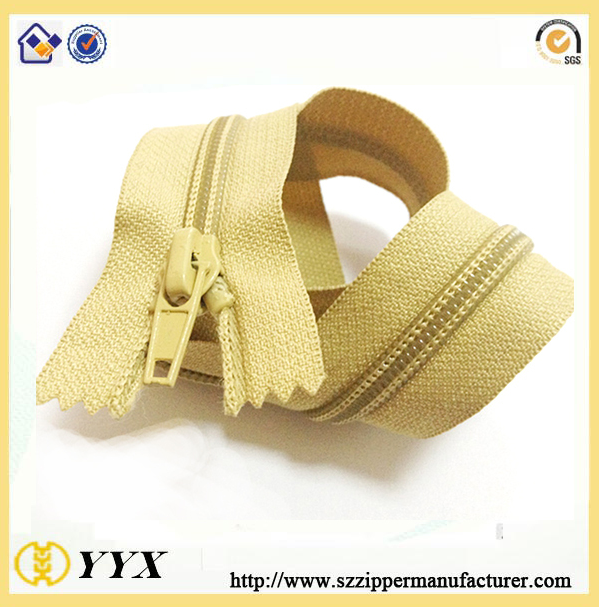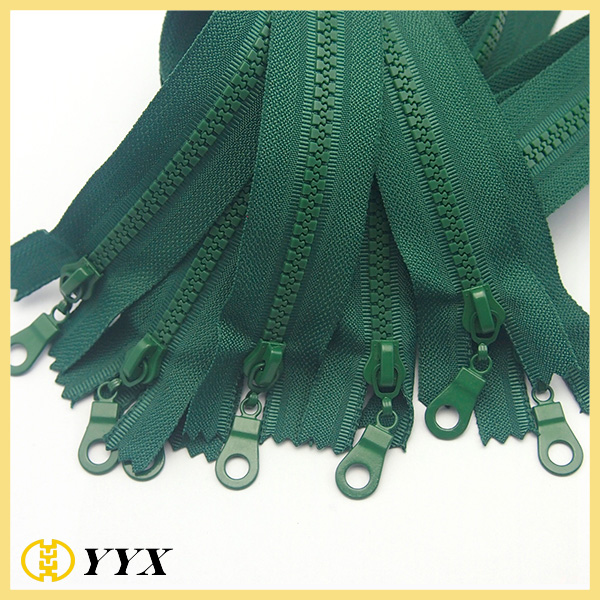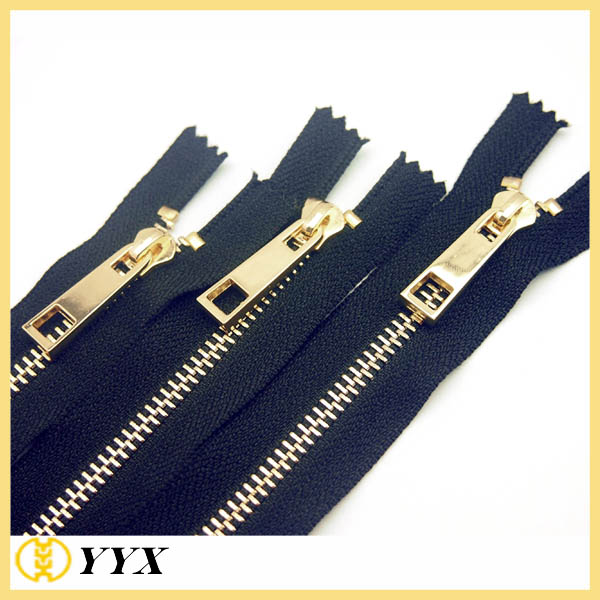In the Zipper world, there are quite a few choices. With a good deal of options, there are some that are paralyzed by the number of choices when ordering Zippers. One of our customer service representatives worked with a client for 2 hours trying to help her make a decision. This post will give you some insight between the teeth and what each tooth style is generally used for.
What is the Difference Between Zippers?
As we know, a zipper will always be used as a device to close or fasten a bag or apparel piece. The biggest difference between zippers are the teeth and the application.
At our zipper factory, we categorize the teeth in the following buckets: Nylon Coil, Plastic Molded, and Metal Zippers. Once these zippers are in their respective buckets, it`s just the gauge size that sets them apart.
1. Nylon Coil – The Nylon Coil Zipper is made exactly how it`s named. There`s a nylon monofilament that is [coiled" to form the teeth. It`s then sewn on to the Zipper Tape to make the final zipper product.
Nylon Coil Zippers are the zippers of choice for the outdoor and luggage industry. Tents, backpacks, suit cases, and camping apparel, you`ll most likely find nylon coil zippers. With the construction of the nylon coil zipper, it lends itself to have a stronger horizontal strength.
We`ve all stuffed our luggage a bit too much and that zipper holding the suit case from exploding is a nylon coil zipper.
Nylon coil zippers are also pretty easy to repair, should a tooth get out of alignment. The nylon monofilament can easily correct itself by zipping and unzipping past the point where the tooth is misaligned and most times it will fix itself. Another thing to note is that with nylon coil zippers, the sliders can be put on the Zipper Chain either direction and the zipper will still function.

2. Plastic Molded – Plastic Molded zippers are made from an acetal polymer that is extruded through a mold to shape the teeth.
The teeth are perfectly symmetrical which means that the slider for plastic molded zippers can run in either direction. Plastic molded zippers are pretty versatile.
They are mostly used on apparel and some handbags. It just depends on the look of the final design. Some like the [chunky` look of the zipper teeth and take that into consideration of the design.
The horizontal strength is decent, however if one of the zipper teeth break over time, it`s almost impossible to repair one tooth.

3. Metal – Metal Zippers come in a few different finishes and gauge sizes as well. The finishes that are most common are brass, antique brass, nickel, antique nickel, and gun metal. There are times that copper and antique copper are used, but it`s definitely not as popular as the other finishes. Different industries within apparel making will choose one finish over another for the purposes of how they want the final garment to look. One example is denim makers.
Most denim makers know the abuse the jeans will be going through and opt for a denim zipper. Typically denim zippers are brass to withstand the brutal washes. Metal zippers are used on items from handbags to coveralls.
Within the Metal Zipper category, there are also Luxury Zippers. Luxury zippers most often have a high polish and high shine to them. They have gone through much more processing to get the smooth finish that elevates the finish of your design.
